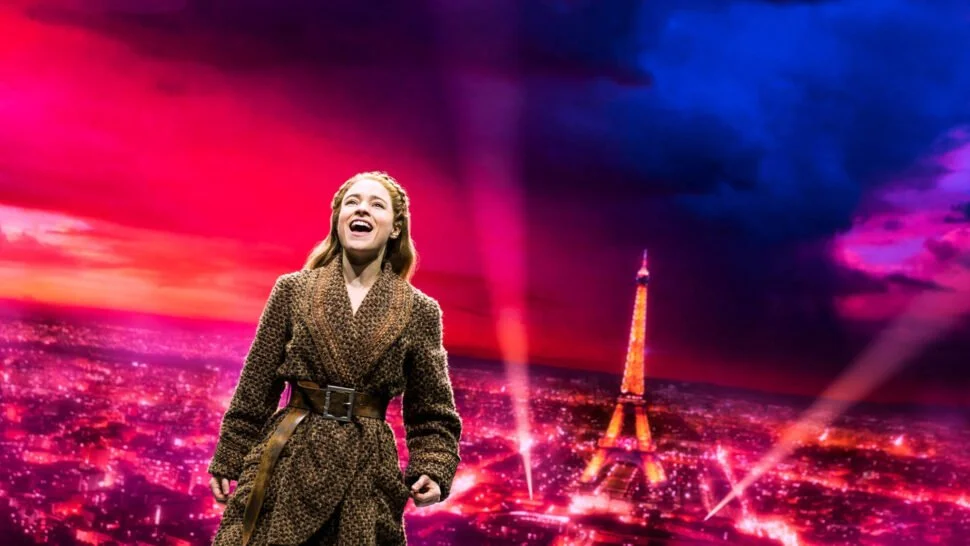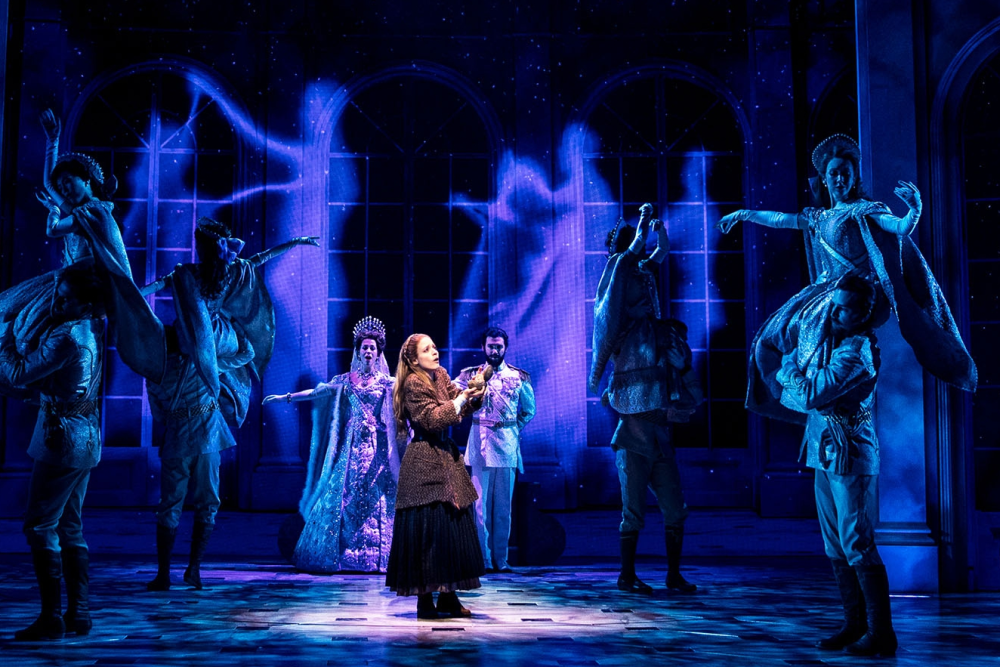“Anastasia”: Beautiful, Flawed, and Worth Remembering
Christy Altomare in Anastasia (Matthew Murphy)
by Chris Peterson
When Anastasia opened on Broadway in 2017, I honestly thought it was destined to be a hit. Like so many others my age, I grew up with the 1997 animated film. I can still remember rewinding the VHS and singing Journey to the Past in my shower, way off-key(Yes, I did that).
The movie had everything a kid wanted: sweeping romance, a heroine trying to find herself, a lush score by Stephen Flaherty and Lynn Ahrens, and a story that, at least in memory, felt every bit as magical as a Disney film. It wasn’t Disney, of course, but it lived in that same part of my brain. So when I heard it was coming to Broadway, I expected the kind of nostalgic fairytale spectacle that Disney has perfected.
And yet, while the musical got mixed to positive reviews, earned a couple of Tony nods, and had a solid run, closing in 2019 after about two years, it didn’t become a Broadway juggernaut that perhaps we thought it might. Even today, it lives in this strange space: loved by its fans, but rarely mentioned when people talk about the Broadway canon.
The truth is, Anastasia wasn’t(at the time) Disney, and maybe that was both its strength and its undoing. Disney musicals thrive on loyalty and brand recognition. Parents know exactly what they’re getting when they buy tickets to Aladdin or Frozen. They trust the shows to recreate the movies their kids know, just with bigger sets, brighter lights, and a little Broadway sparkle.
(Matthew Murphy)
Anastasia though took a different route. Terrence McNally’s new book pulled away from the animated film. Rasputin and his bat sidekick Bartok were gone. In their place came revolution, Bolsheviks, and a much heavier dose of historical realism.
That was a bold choice, and in some ways, I admire it(as I do with most of McNally’s works). But it also meant families walking into the theatre expecting to see their beloved cartoon come to life might have left confused. Instead of a campy, magical villain and talking animals, they got politics and assassinations. That may have been the more mature and “serious” story to tell, but it also cut off a huge potential audience. Unlike Disney, Anastasia wasn’t doubling down on nostalgia; it was trying to reimagine it.
And that’s where I think the musical got stuck. It was too heavy and serious to fully work as family entertainment, yet too tethered to its cartoon roots for adults to embrace it as highbrow historical drama. It tried to please both camps, and as a result, it never entirely belonged to either.
I should say, though: I liked Anastasia. The music is as stunning on stage as it was on film. Flaherty and Ahrens added new songs that felt natural, even essential. My Petersburg is one that always stands out to me because it gave Dmitry a depth he didn’t really have in the movie. And of course, hearing Journey to the Past and Once Upon a December sung live gave me chills.
Christy Altomare, who originated the role of Anya, was luminous. She brought this mix of strength and vulnerability that really carried the show(I would love to see her back on Broadway, by the way). And visually, the production could be breathtaking. The projections in particular created these sweeping, cinematic moments, the kind that make you remember why you go to the theatre in the first place.
Still, Broadway is unforgiving. Being “good” isn’t always enough. Anastasia never shook off the feeling that it wasn’t quite what people wanted it to be. Without the Disney label, it lacked that built-in trust with families. Without the campy villain from the film, it disappointed some nostalgic fans. And in the crowded Broadway market of the late 2010s, there were just too many other shows vying for attention, such as Dear Evan Hansen, Natasha, Pierre & The Great Comet of 1812, and even Come From Away. Compared to them, Anastasia was harder to market. It didn’t have a simple pitch.
But here’s what I find fascinating: the show didn’t disappear, far from it. It’s had a thriving life on tour, international productions, and school and community stages. I think that says something about its appeal. Families who never planned a Broadway trip could still see it when it came to their city, and in that setting, the balance between nostalgia and reinvention seemed to work better. Outside of the Broadway pressure cooker, Anastasia has had room to breathe, and audiences have embraced it.
So how good is Anastasia really? For me, it’s good, but complicated. It’s not a flawless musical, but I’ve never thought it had to be. It’s beautiful, it’s romantic, it’s got an incredible score, and it dared to do something a little different.
The very thing that made it interesting, the decision to move away from the animated movie, was also the thing that kept it from Broadway immortality. And maybe that’s okay. Not every show has to run for twenty years to matter. Some can be beautiful in their own moment, leave a mark, and then find a second life on the road.
When I think about Anastasia, I think about how it made me feel sitting in that theatre, how much I enjoyed it, how much it reminded me of watching the movie as a kid, and how grateful I was that it wasn’t just a carbon copy of the film. It may not be one of Broadway’s biggest success stories, but it’s one I’ll always remember fondly. And maybe that’s all a show really needs to do.

